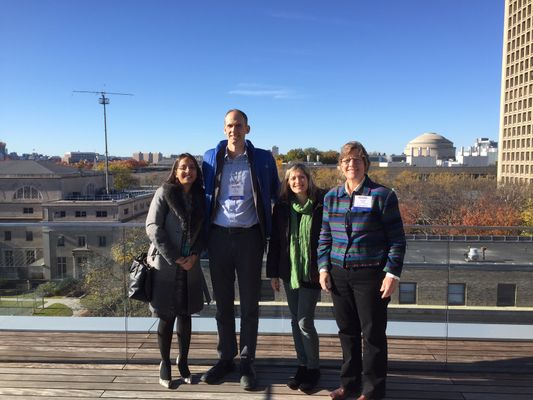From November 9th-12th, researchers, students, entrepreneurs, innovators, field practitioners, and private sector professionals convened at the Higher Education Solutions Network (HESN) conference, TechCon 2016 in Boston, Massachusetts. TechCon showcased innovations emerging from the eight HESN Development Labs and the broader development and higher education communities focused on innovation for social good. These various stakeholders met to energize science and technology solutions for development.
A few years back, social entrepreneurship had not gained the widespread reception and popularity that it receives now. As social impact increased in popularity so has the ecosystem that supports it. Capital plays an important role in this ecosystem, helping enable social innovations to reach scale. Capital comes in a variety of forms, ranging from grant funding to impact investments. During the various life cycles of social innovation, different forms of funding make sense.
During TechCon 2016, the yearly gathering of the USAID Higher Education Solutions Network, two IiH/SEAD innovators, Zeena Johar, founder of SughaVazhvu, and Nick Pearson, founder of Jacaranda Health, spoke on this very issue during the panel session Get Ready for Funding. The panel also included Jennifer Potts, Deputy Director of Innovations in Healthcare, and Cathy Clark, Director of the CASE Initiative on Impact Investing and Co-Principal Investigator of SEAD.
These innovators, while working on different innovations and markets, experienced similar stories with regards to funding their ventures. SughaVazhvu is a healthcare venture based in India that offers low-cost primary healthcare services to underserved populations through their unique clinic system. Jacaranda Health, meanwhile, operates a chain of clinics focused on reproductive health services for low income women in urban centers in Kenya.
During TechCon 2016, the yearly gathering of the USAID Higher Education Solutions Network, two IiH/SEAD innovators, Zeena Johar, founder of SughaVazhvu, and Nick Pearson, founder of Jacaranda Health, spoke on this very issue during the panel session Get Ready for Funding. The panel also included Jennifer Potts, Deputy Director of Innovations in Healthcare, and Cathy Clark, Director of the CASE Initiative on Impact Investing and Co-Principal Investigator of SEAD.
These innovators, while working on different innovations and markets, experienced similar stories with regards to funding their ventures. SughaVazhvu is a healthcare venture based in India that offers low-cost primary healthcare services to underserved populations through their unique clinic system. Jacaranda Health, meanwhile, operates a chain of clinics focused on reproductive health services for low income women in urban centers in Kenya.
Both started out testing their innovations with grant funding, which provided them the flexibility needed during the initial research and development and startup phase. Johar talked about how even in this early stage, the foundation that provided them with grant funding played an active role in overseeing SughaVazhvu’s success. As both organizations have iterated on their models to bring them to a point of sustainability, they have started to look at other sources of funding – impact capital.
Impact investors care about social or environmental impact as well as the financial aspects of a social venture which need to be sustainable enough to scale. Johar and Pearson both mentioned the importance of unit economics and nailing that down during the starting period of the venture. The speakers emphasized the importance of being strategic and intentional with the capital you raise.
Cathy Clark also hit on three important questions entrepreneurs need to ask themselves while raising funds: how easy is it for you to access the capital you need, what conditions does your capital have and is it working for you, and is what you’re raising now helping to make raising funding in the future easier.
SEAD and CASE have created online modules called Smart Impact Capital to assist social entrepreneurs in the capital raising process trying to answer these questions. Currently, there are three modules available and more are being developed. It is exciting to see the innovative ways in which investors and academic institutions are coming together to support entrepreneurs to get the kind of capital they need.
Impact investors care about social or environmental impact as well as the financial aspects of a social venture which need to be sustainable enough to scale. Johar and Pearson both mentioned the importance of unit economics and nailing that down during the starting period of the venture. The speakers emphasized the importance of being strategic and intentional with the capital you raise.
Cathy Clark also hit on three important questions entrepreneurs need to ask themselves while raising funds: how easy is it for you to access the capital you need, what conditions does your capital have and is it working for you, and is what you’re raising now helping to make raising funding in the future easier.
SEAD and CASE have created online modules called Smart Impact Capital to assist social entrepreneurs in the capital raising process trying to answer these questions. Currently, there are three modules available and more are being developed. It is exciting to see the innovative ways in which investors and academic institutions are coming together to support entrepreneurs to get the kind of capital they need.
Originally posted by Duke SEAD here.

